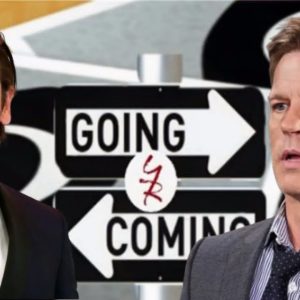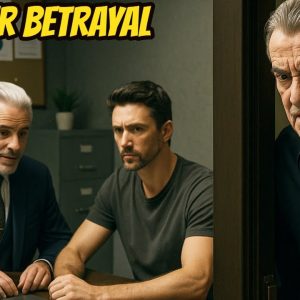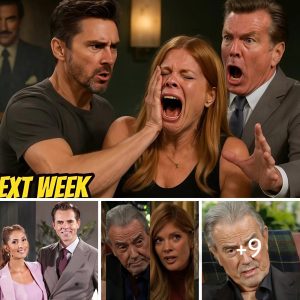In the swirling drama of The Young and the Restless, Genoa City is no stranger to secrets, betrayal, and bloodline battles. But the revelation that Aristotle Dumas—the shadowy, calculating force behind a storm of corporate and personal chaos—is none other than Cane Ashby, marks a new era of reckoning for every power player in town. The stakes have never been higher, and the past has never loomed so dangerously over the present.
Cane Ashby was once considered a reformed outsider, a man searching for belonging among the Chancellors, yearning for a slice of familial recognition through Jill Abbott’s unwavering support. She once believed he was her long-lost son, Phillip Chancellor III. That belief was eventually disproven—but instead of walking away, Jill deepened the emotional bond, choosing to mother him not by blood, but by choice.
Now, that choice may cost her everything.
Cane’s return under the alias Aristotle Dumas sends shockwaves through Genoa City, not only because of his secret identity, but because of the methodical empire he has quietly built. With connections rooted in international power, advanced manipulation tactics, and an uncanny ability to predict the moves of titans like Victor Newman, Cane emerges not as a man on a redemption arc—but a force of ambition, hiding behind a polished mask of reinvention.
Victor Newman, the city’s iron-willed patriarch, becomes the primary target of Cane’s calculated takeover. As Newman Enterprises and Chancellor Industries face internal infiltration, Victor fights back with the full force of his network—private detectives, surveillance, and strategic alliances. Yet, the deeper he digs, the more he realizes: Aristotle Dumas isn’t just another rival—he’s a mirror of Victor’s younger self. Cold, relentless, and dangerously smart.
But Victor isn’t Cane’s only challenge.
Billy Abbott, torn between love, legacy, and justice, finds himself both outraged and heartbroken. Watching his mother, Jill, continue to support Cane triggers suspicions that she may not just be a passive bystander, but an enabler of Cain’s rise. Billy’s paranoia is compounded by the resurfacing of Colin Atkinson—Cane’s real father, long tied to criminal dealings. Could Colin and Jill have built this monster together?
Caught in this hurricane is Lily Winters, Cane’s former love. Once fiercely loyal, Lily is now lost between heartbreak and confusion. Her years with Cane feel like a lie—was it all a performance to reach the top? Her children, Charlie and Maddie, too, feel the tremors. Maddie seeks answers. Charlie lashes out. Lily is left fearing the cost of generational trauma playing out in real time.
Meanwhile, power brokers across Genoa City begin to choose sides. Some see Cane’s intellect as the dawn of a new corporate future. Others cling to Victor’s old-guard dominance. Devon Hamilton, Sharon Newman, and Phyllis Summers all find themselves reluctantly drawn into the chaos. Deals are made in shadows. Loyalties tested. The balance of power teeters dangerously.
But perhaps the most emotionally devastating question belongs to Jill Abbott.
Did she create this?
Her choice to embrace Cane, to nurture and empower him when the world turned its back, came from love. But did that love blind her to warning signs? Has she mistaken ambition for redemption? In a quiet moment on the balcony during a grand party thrown by Aristotle Dumas, she asks Cane the question that pierces through all the glitz and grandeur:
“Is it power, fame, or family that truly matters to you?”
And Cane, for once, is silent.
This is the brilliance and heartbreak of The Young and the Restless. It doesn’t just tell stories—it confronts the human condition. Cane’s evolution into Aristotle Dumas is more than a power grab. It’s the tale of a lost man, aching to be someone, finally becoming someone—and discovering that the cost of that transformation may be his soul.
Jill, Billy, Lily, Victor—each stands at the brink. Forgiveness battles with fury. Legacy contends with betrayal. As Chancellor teeters on the edge of acquisition and Newman Enterprises is hunted from within, every character is forced to ask: what am I willing to sacrifice?
For Jill, it may be her family. For Billy, his mother. For Lily, the illusion of love. And for Cane… perhaps everything.
The Young and the Restless has always been about power, love, and betrayal—but never quite like this. As Aristotle Dumas rises and the last pieces of Cane Ashby fade, Genoa City braces for the next aftershock.
Because in this world, masks don’t just hide secrets—they reveal the darkest parts of us once they fall.





